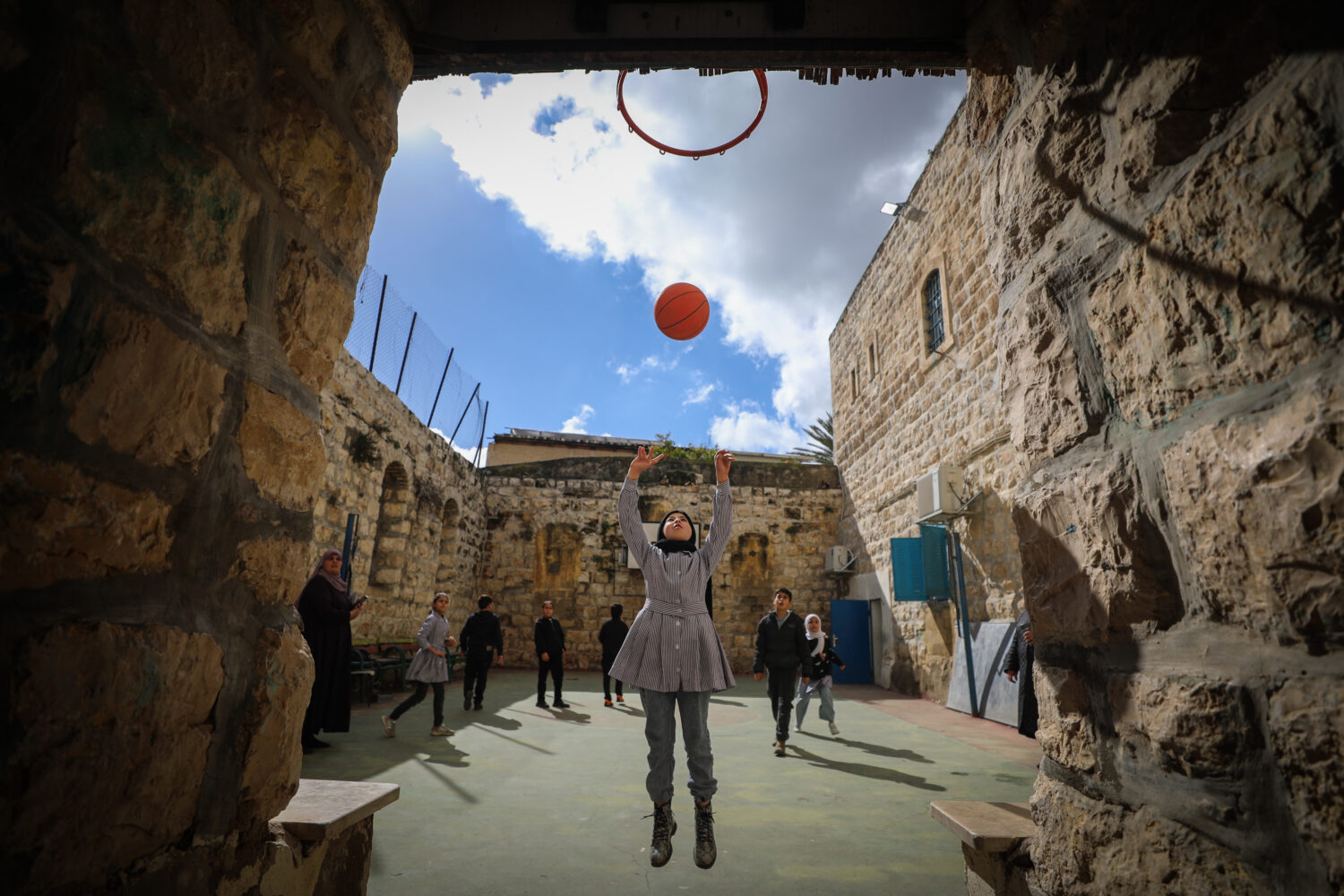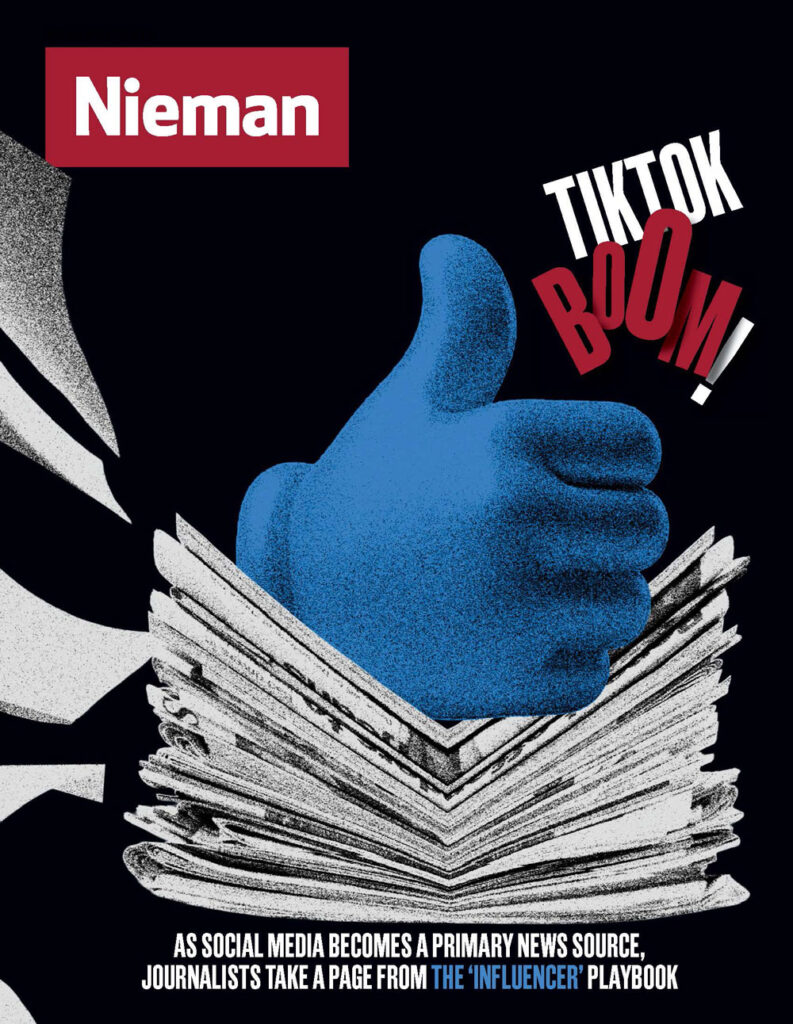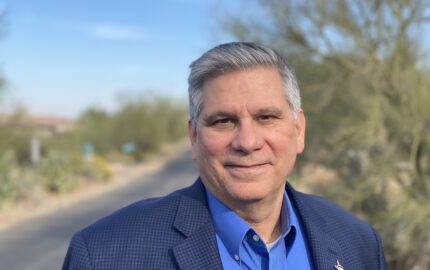In May, the 2025 Nieman class honored +972 Magazine — an unusual Israeli-Palestinian collaboration whose mission is to provide in-depth reporting “from the ground in Israel-Palestine” — with the Louis M. Lyons Award for Conscience and Integrity in Journalism. The 24 Nieman Fellows lauded the nonprofit investigative news organization for its relentless and courageous efforts to “document the human cost of war and occupation.”
+972 Magazine’s work has exposed deadly military practices in the Israel-Hamas war, including the use of artificial intelligence and drones, and the targeting of working journalists in Gaza and the West Bank. The online outlet takes its name from the telephone code that is shared by Israelis and Palestinians.
Related Posts
“At a time when dialogue has all but collapsed, +972 Magazine’s binational team proves that journalists can build bridges and narrow divides by showcasing perspectives that are overlooked or marginalized by mainstream narratives,” said Sandrine Rigaud, a member of the Nieman class of ’25, in presenting the Lyons Award.
Below are excerpts from a conversation between the Nieman Fellows and +972 Magazine editor-in-chief Ghousoon Bisharat, investigative reporter Yuval Abraham, and New York-based editor Jonathan Adler during the online Lyons Award ceremony on May 7.
The comments have been edited for length and clarity.
On creating a binational newsroom model in such a polarized region
Ghousoon Bisharat: We created a unique model of journalism, one that is fiercely independent. ... We have always strived to produce professional, fact-based reporting and analysis on Israel-Palestine.
But we also know that in journalism, context and framing are key. Connecting the dots is one of the most important principles of our journalism. Long before October 7, Israel erased the Green Line and consolidated a single regime between the Jordan River and the Mediterranean Sea, which is based on Jewish supremacy and a permanent domination over Palestinians. For years, +972 Magazine has constantly sought to connect the dots to show what is happening across all of Israel-Palestine. …
What is very unique to our binational project is that we all have a very clear political commitment and ideological commitment to equity and justice for all living in Israel and Palestine.
It is definitely not easy to be part of a binational project. At this time, in particular, it’s never easy. But we have a huge network of writers and contributors who believe in our mission.
On their colleagues reporting from Gaza
Bisharat: I honestly don’t know how they can keep going. You know, if I were in that situation, I wouldn’t be able to go and report and handle editors who ask a million questions about the facts and checking the information … every time we publish something. One of our reporters in Gaza [is] Ibtisam Mahdi — she’s a mother of two children, and they’re similar to the ages of my kids. And when her main mission every day now is to bring some food home — [to] what used to be a home; now it’s partially destroyed and she lives in one small room — I honestly don’t know how she can keep going. …
On the impact of their work
Yuval Abraham: The reactions to some of the investigations that I wrote have been really completely different internationally and in Israeli society. In Israel, I think actions went largely from disregarding the investigations to, I would even say, among the mainstream, somehow a feeling of almost pride in some of [what] the investigations [exposed] — that the military is sophisticated technologically or that the military is fierce and harsh.
I remember reading the comments on some of the follow-ups that we got because the Israeli mainstream media reported about it. It wasn’t from a critical perspective, but often from the perspective of “This is happening and it’s good that it’s happening.” This was a change for me because usually, I think before October 7th, often we would write an investigation or an article and then there would be a kind of factual debate about it in the Israeli society; people would say the reporting isn’t accurate. Here, I felt that the reporting was not being contested amongst the mainstream media. … It was just something that we are either disregarding or accepting and even appreciative of. … We always say, “Truth to power,” right? That exposing truth will have some effects on power, on the military, on the government. But I really feel we’re living in a situation where exposing that truth, especially in the Israeli context but also in the United States, has had very little effect on power.
On the effects of censorship
Abraham: The media outlets that are based in Israel, we are subject to censorship laws. When we are reporting on issues that are related to the military or to intelligence, we have to send the reporting to these military censors, which then can choose to basically interfere in the story in different ways. The censor can erase the entire story and tell us we’re not allowed to publish it, or it can erase certain sentences or paragraphs in the story. … If the censor interferes in a story that you’re writing, you have to respect it. And you cannot write in the story that “I was not allowed to publish more because of the Israeli military censor.”
Also, it affects the way sometimes we approach the reporting because there are certain stories that I would feel have a lot of public value, but when I speak to … my editors, we are already thinking: Is it worth it to spend weeks and months reporting and investigating this story if, at the end, the censor will just not allow us to publish it? So there’s this form of self-censorship where we are already thinking, what will the censor maybe say?
Jonathan Adler: We publish an annual piece on censorship that Haggai Matar, who’s our executive director, has taken the task of compiling each year. In 2023, the military censor banned the publication of around 600 articles. That was the highest number we had ever seen in the history of +972 tracking this since 2011. This year [it] was up to 1,600 articles that were completely banned and over 6,000 … [where] parts were redacted. Part of that is a result of [an] increase in the … number of articles submitted to the military censor. But it sort of speaks to the degree of repression.
On the pursuit of objectivity vs. accuracy
Bisharat: I personally do not believe in objectivity. We believe in accurate and fair journalism. But that does not mean that things are not complex here. … It’s not all black and white, and we deal with complexity within the Israeli society, within the Palestinian society, and we are not shy of doing that.
We accept this [Lyons] Award not as a pat on the back, but as a call to keep going, to keep reporting when [the] news cycle moves on. So to the Nieman Foundation and to each one of the Nieman Fellows of [the] class [of] ’25, thank you. … We accept this award with deep gratitude and with renewed commitment to the work ahead.


